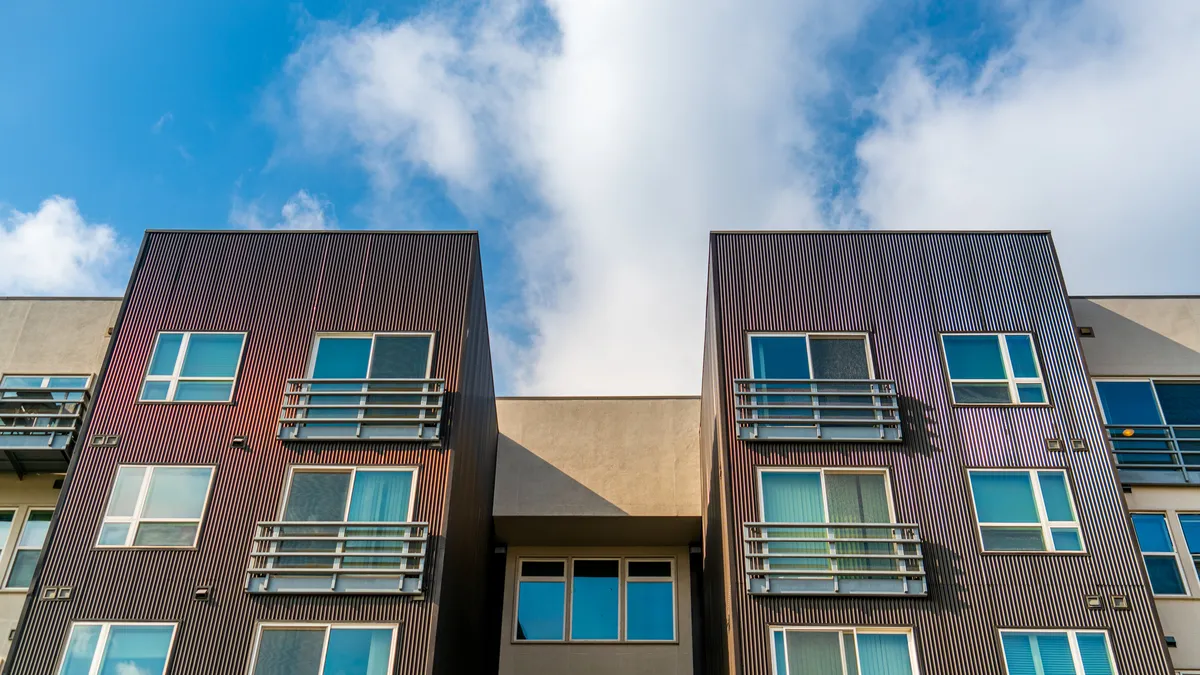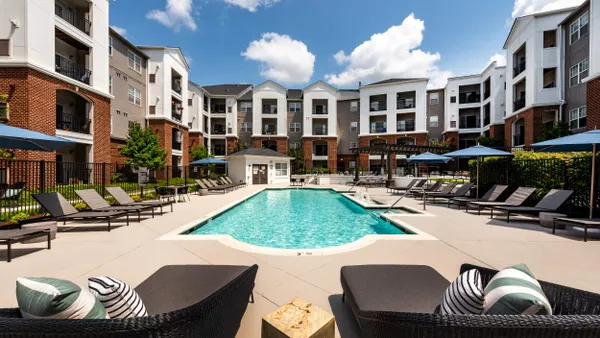Dive Brief:
- Apartment sales volume fell 14% year over year to $35.1 billion in the second quarter, according to a report that data firm MSCI Real Assets shared with Multifamily Dive. However, it rose 5% to $66.6 billion in the first half of the year.
- Unlike Q2 2024, no major entity-level deals closed in 2025. Last year, New York City-based investment manager Blackstone took Denver-based Apartment Income REIT Corp. private for approximately $10 billion, which drove transaction volume.
- The Real Capital Analytics commercial property price indexes ticked up 0.1%, according to MSCI. Cap rates have remained flat at 5.7% over the past year.
Dive Insight:
In its monthly report, MSCI acknowledged that the headline sales numbers for 2025 appear unfavorable. But if you dig a little deeper, things are more promising.
“The reality, though, is that the market is still the largest, most liquid component of the commercial real estate market in the U.S., with deal volume just below pre-pandemic levels,” MSCI said in the report. “The decline for the quarter was an artifact of one big deal in the same quarter last year.”
Individual asset sales, often considered the bedrock of multifamily transactions, rose 15% YOY in Q2 to $28 billion. In the five years before the pandemic, apartment trades averaged $29 billion in Q2.
In the six major metropolitan areas of Boston; New York City; Washington, D.C.; Los Angeles; San Francisco; and Chicago, individual sales increased 6% to $6.7 billion in Q2. In the non-major metros, activity for these deals increased 18% YOY in the quarter on sales of $21.3 billion.
Portfolio sales fell 57% to $7.1 billion in Q2. No portfolio was traded for more than $1 billion, with the six largest priced at more than $400 million.
Apartment investors say the transaction market slowed noticeably after President Donald Trump’s tariff announcements in April.
“We're dealing with tariffs,” Jim Brooks, president of Los Angeles-based real estate investor BH Properties, told Multifamily Dive. “We're dealing with elevated interest rates, and not a lot of cuts are projected. So there is a high cost of capital. Things have gotten slower on the capital market side.”
However, Brooks remains hopeful that things will pick up for his firm, partially because institutional investors are still not fully back in the market.
“We're optimistic, just given the way we're capitalized and the way we can operate,” Brooks said. “Privately capitalized investment groups should have their moment in the sun before institutional capital comes flooding back in.”
Click here to sign up to receive multifamily and apartment news like this article in your inbox every weekday.











